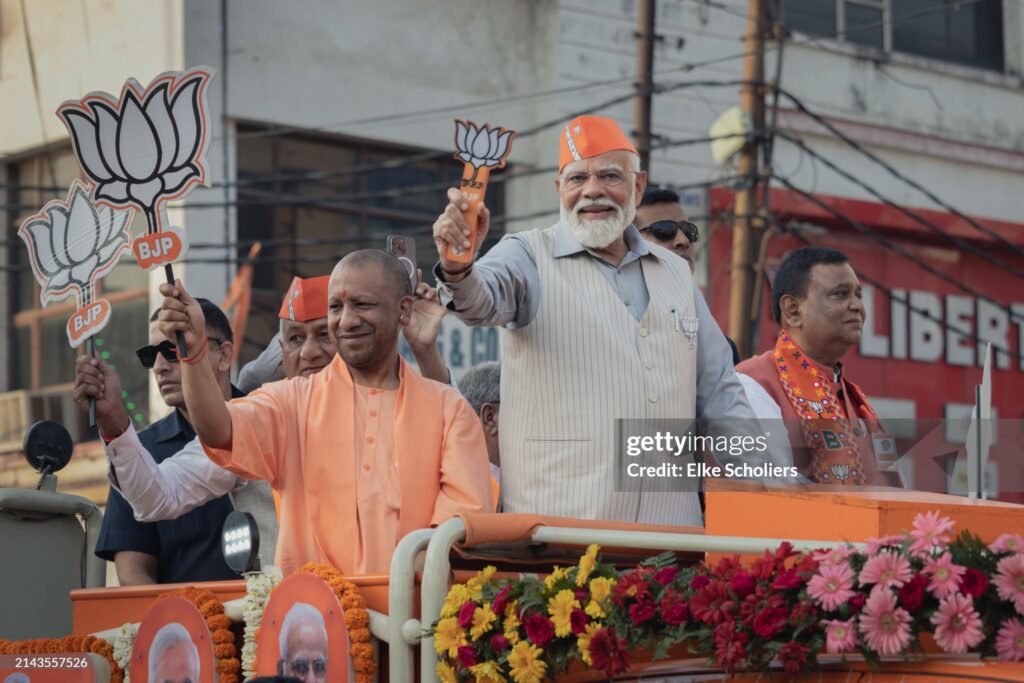A political context favorable to BJP
The BJP, founded by members of the Rashtriya Swayamsevak Sangh (RSS), advocates a Hindu nationalist ideology. Since coming to power at the national level in 2014 under Narendra Modi’s leadership, the party has strengthened its position by emphasizing economic development, infrastructure modernization, and national security. However, its ideology has also raised concerns, particularly regarding tolerance toward religious minorities.
The failure of the AAP in these elections reflects a shift in voter priorities in Delhi. The AAP, which had dominated in 2015 and 2020 due to its policies on education, healthcare, and public services, appears to have lost ground to the BJP’s focus on nationalism and security.
A political triumph for Narendra Modi
Shortly after the announcement of the results, Narendra Modi declared, « Progress has prevailed, good governance has prevailed. » This victory reinforces the BJP’s dominance as India’s leading political force and reaffirms its ability to rally a broad and diverse electorate.
India’s current president, Droupadi Murmu, a BJP member and the first woman of tribal origin to hold this office, also symbolizes the party’s stance on inclusion. Her election in 2022 was strongly supported by the BJP and its allies, further solidifying their influence over national institutions.
Challenges and controversies
While this victory demonstrates popular support for the BJP’s agenda, it also raises concerns. The expansion of Hindu nationalist ideology could heighten intercommunity tensions and challenge the principles of pluralism and secularism that have long defined Indian democracy. Several human rights organizations have expressed concerns about increasing discrimination against Muslim and Christian minorities.
Moreover, the BJP’s victory in Delhi raises questions about the future of the AAP and the opposition as a whole. Given India’s dynamic democracy, the evolution of political power balances in the coming years will be crucial in determining whether a genuine political alternative remains viable.
The BJP’s victory in the Delhi legislative elections is more than just an electoral success—it signifies the rise of Hindu nationalism and confirms Narendra Modi’s dominance in Indian politics. However, this supremacy also raises questions about the status of minorities and the country’s ability to maintain its democratic balance. India’s political future will largely depend on how these tensions are managed and how resilient its institutions remain in the face of upcoming challenges.










